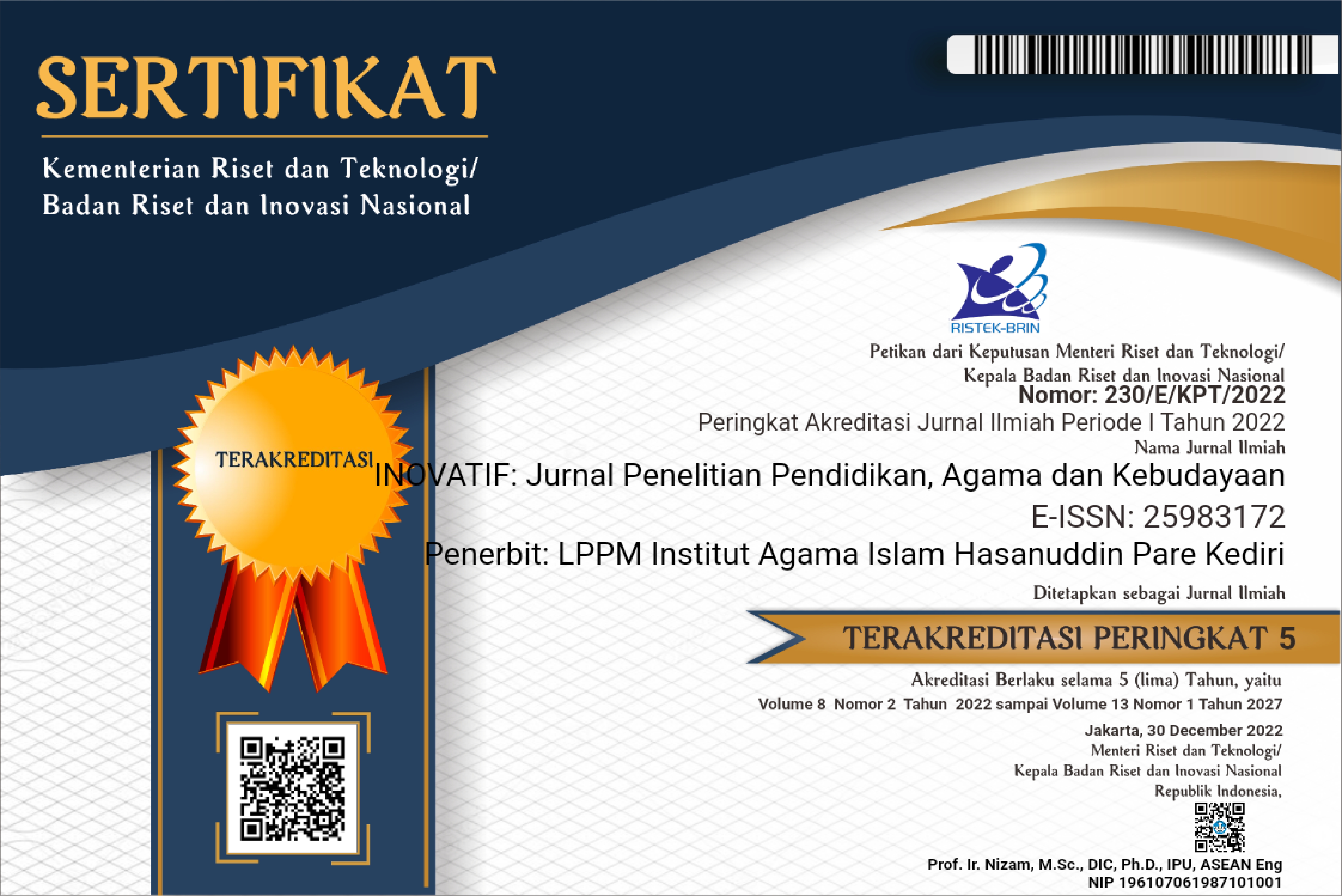DEVELOPING MONOPOLY HANDBOOK BASED ON COGNITIVE THEORY FOR STUDENTS’ PRE-INTERMEDIATE SPEAKING OF POJOKREJO ENGLISH COURSE
DOI:
https://doi.org/10.55148/inovatif.v8i1.776Keywords:
Monopoly Handbook, Cognitive Theory, Instructional Media, Pre-Intermediate SpeakingAbstract
Pre-intermediate-level students must continuously improve their speaking ability through the learning process based on their needs and level, like the learning process of cognitive theory. It is because the students already had their experiences of learning to speak. Therefore, this research aimed to develop Monopoly Handbook based on cognitive theory for students’ pre-intermediate speaking of Pojokrejo English Course and determine their perceptions of Monopoly Handbook as instructional media for speaking learning. Research and development model was the methodology employed in this research. The development of Monopoly Handbook was arranged by the learning process of cognitive theory with characteristics: using simple to complex patterns, focusing on the process than the result, and providing stimulated things to explore their understanding, becoming abstract ideas and thoughts. The product passed through validation to examine its effectiveness by material and design media experts. It was a “good” qualification, meaning the product could be used for revisions, with a score of 3,10 for the material and 3,04 for design media. The revisions were done, and it was tried out by eight pre-intermediate students at Pojokrejo English Course. The questionnaire was instrumented by Google Form to determine students' perceptions of the effectiveness of Monopoly Handbook for learning pre-intermediate speaking. The chart of recapped results showed that Monopoly Handbook had to revise its instructions and access codes. It was supported by the researcher’s view as the teacher during the try-out. The revisions passed its perfection of the effectiveness of producing instructional media in improving speaking ability, and it covered students’ interests and motivation.
References
Downloads
Published
Issue
Section
License
Please read Copyright Notice for Inovatif: Journal of Research on Religious Education and Culture









